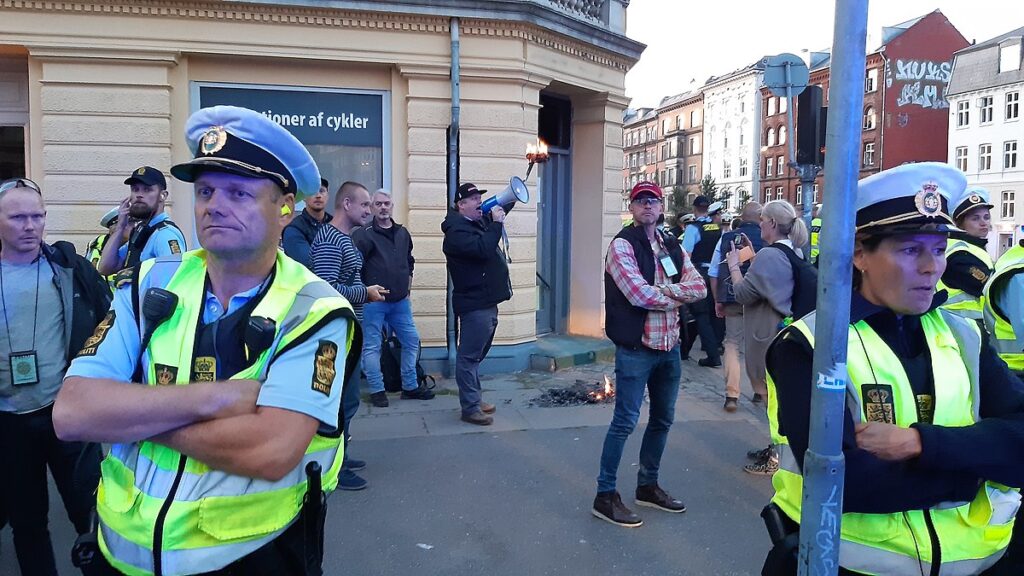
A series of Qur’an burnings across Sweden has driven divides across national and international communities, provoking concern over weakening national security and freedom of speech laws.
The burnings have been taking place over several months but gained significant media attention following an incident on the 28th of June when 37-year-old Salwan Momika ripped pages out from the Qur’an, set them alight, and placed bacon on the remains outside Stockholm Mosque where Eid al-Adha celebrations were taking place.
2.1% of Sweden’s population identifies as Muslim – a small but not insignificant number – however, many feel that the Swedish government is ignoring its Muslim population altogether. In an interview with the Guardian, a woman who wished to remain unnamed said: “Fascists are fascists, you can’t wait for them to be something else. The Sweden Democrats and this minority government is driving its agenda and we aren’t even being spoken of”.
Desecrating scripture is not illegal in Sweden, but recent events have called into question where the line is between freedom of speech and hate speech, with calls to reform the centuries-old laws.
Desecrating scripture is not illegal in Sweden, but recent events have called into question where the line is between freedom of speech and hate speech, with calls to reform the centuries-old laws. Sweden has highly protected laws for freedom of expression and freedom of speech, dating back to 1766, and blasphemy laws were scrapped altogether in the 1970s. This means that “expressions of opinion that question religious messages, or that can be perceived as hurtful to the believer” are permitted under Swedish law.
These burnings are not necessarily instantaneous or covert; protesters who intend to burn the Qur’an can request permits from the police; however, the exact number of permits granted is currently unclear. In an interview with Al Jazeera, Abbas Salimi Namin shared insight into why recent events are damaging for Muslims and Sweden’s legal system, calling the burnings an “insult to the sanctities of a great population is happening under the guise of protecting freedoms”.
While the government does not condemn the burning of scripture, this is not a small issue for Muslims. It is not only the words inside the book that are considered sacred; the physical text holds weight too. Before touching a copy of the Qur’an, Muslims perform Wudu – a ritual washing of the hands and body, and the book is not allowed to touch the floor at any point. Damaging copies of the Qur’an is considered blasphemous under Islamic law and holds severe punishment in some countries, including death sentences in Afghanistan, Saudi Arabia and Somalia, and either a whole life prison sentence or a death sentence in Pakistan.
The burnings have spearheaded significant internal and international tension; the Swedish embassy in Iraq was set alight on the 20th of July after more book burnings were approved by police.
The burnings have spearheaded significant internal and international tension; the Swedish embassy in Iraq was set alight on the 20th of July after more book burnings were approved by police. In response to growing international criticism and protests, police have begun blocking burning requests, using the Public Order Law as justification, and Sweden’s government has raised its terror threat level from 3 (‘heightened threat’) to 4 (‘high threat’) on a 5-point scale.
Police in Sweden have also received permit requests to burn the Torah and the Bible, including a request in July by Ahmad Alush to burn both the Torah and the Bible outside the Israeli Embassy in Stockholm in protest to the Qur’an burnings. Alush later said he would not burn the texts: “It is against the Qur’an to burn, and I will not burn. No one should do that… this is a response to the people who burn the Qur’an. I want to show that freedom of expression has limits that must be taken into account.” His request was certainly impactful; his demand was met with significant anger, while requests to burn the Qur’an were not met in the same way, indicating a bias around which texts are allowed to be burned.
Sweden is not the only country experiencing a rise in sacred-text burnings; in January, far-right and anti-Islam Danish politician Rasmus Paludan burned a copy of the Qur’an outside the Turkish Embassy, amidst other protests in the area. On July 31st alone, there were seven Qur’an burnings planned across Denmark.
It is currently unclear how the Swedish government plans to move forward, and they have been accused of continuously blaming individuals, rather than government policy, for the turmoil. National and international organisations have attempted to intervene but have found little success; The Islamic Federation in Sweden’s head has complained that attempts to hold dialogue with the government have been ignored. Similarly, the 57-member Organisation for Islamic Co-operation has presented a 35-point action plan to the Secretary General of the UN to seek resolve for the unrest, but action is yet to be taken. It seems unlikely that their freedom of speech laws will change any time soon, as the Swedish government has contacted officials in Iran, Iraq, Algeria, Turkey, and Lebanon in an attempt to explain their freedom of expression laws and settle the growing tension. The Turkish government has cited concerns around the burnings to block Swedish accession to NATO.


